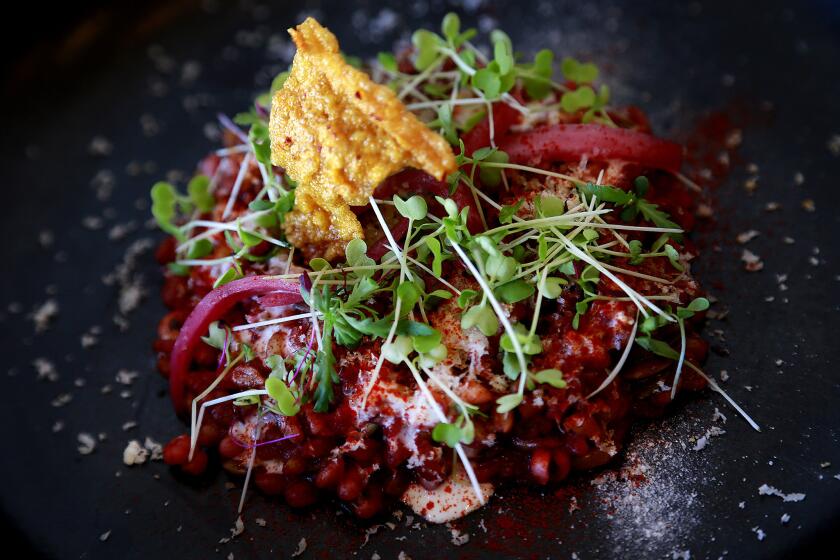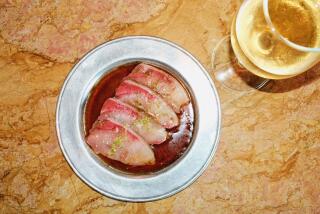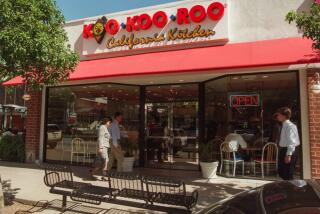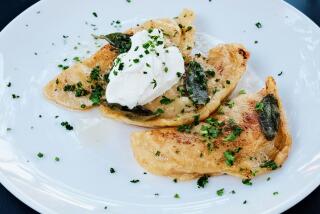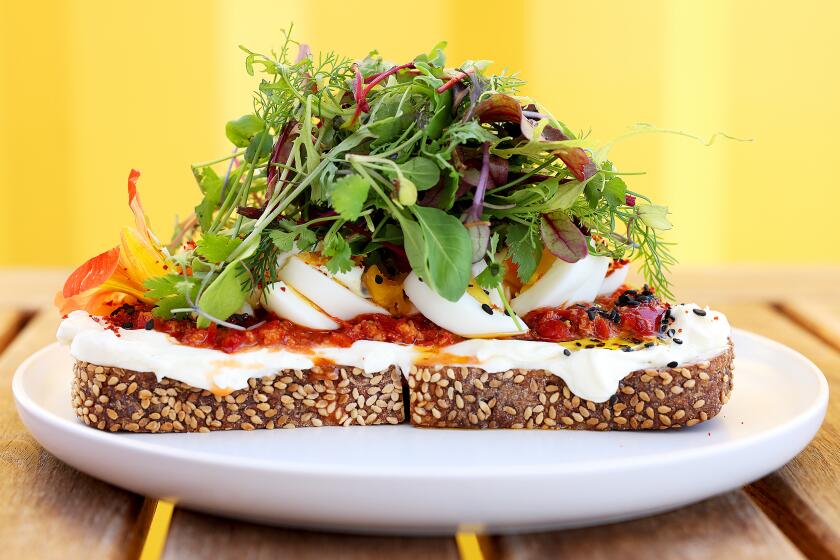Baroo’s Kwang Uh and Mina Park are opening a Korean food concept in Grand Central Market
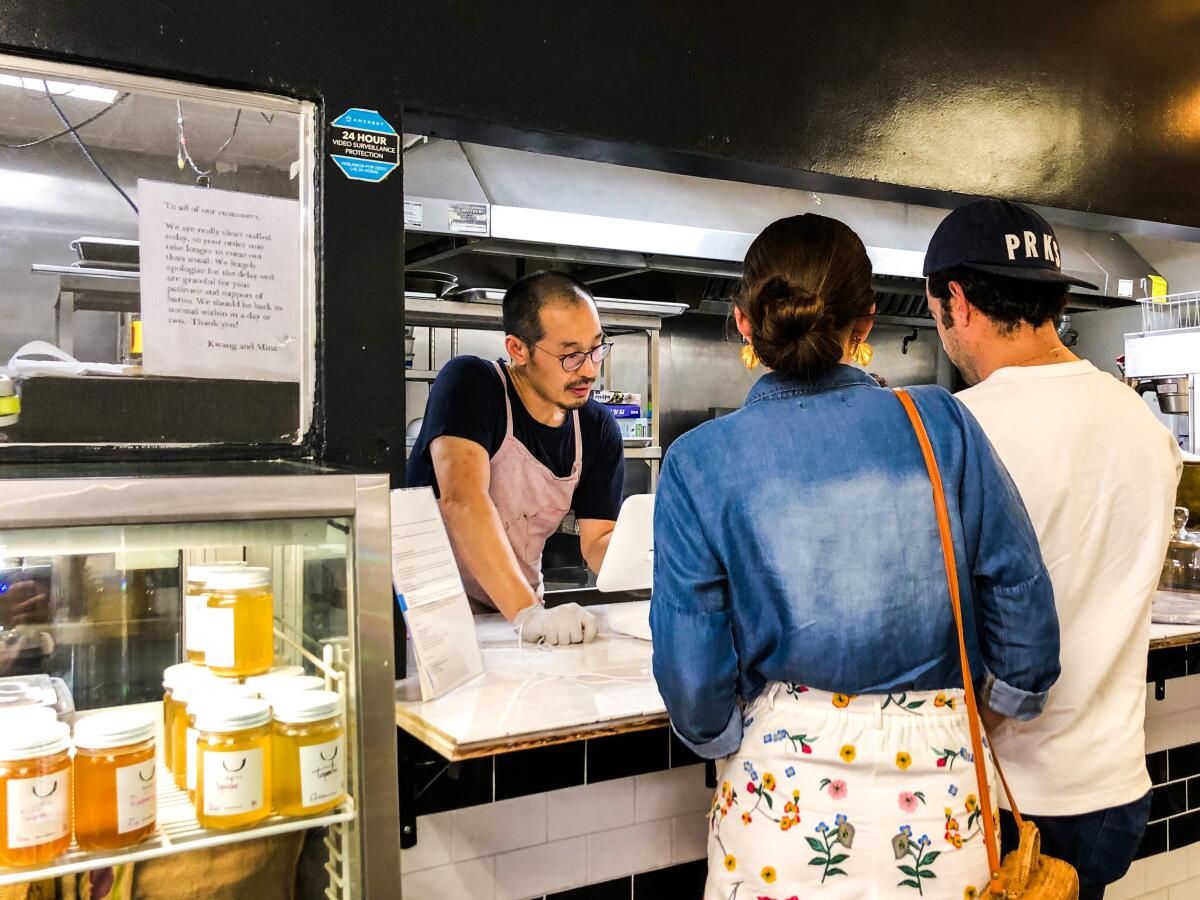
When Kwang Uh and Mina Park closed their pop-up counter Baroo Canteen in December, they assured followers on social media that they had “another project or two” slated for 2020.
At least one of those projects has come to fruition — Uh and Park will open a casual Korean restaurant called Shiku at Grand Central Market in mid-April.
Named for a Korean word that refers to extended family or community (literally meaning “the people you share food with,” Uh said), Shiku’s menu will be a departure from the modernist fusion offerings that first put the critically lauded Baroo, which closed in 2018, on the city’s culinary radar.

“We wanted to focus on traditional Korean food, family-style cooking,” Uh said. “It’s very distinct from Baroo. This is food we grew up eating every day at home.”
Park said the partnership with Grand Central came about after a conversation with Kevin West, the downtown market’s creative director.
Before you read any further, you should probably know that the restaurant I’m about to describe has as its specialty a pink, creamy plate of mold.
“Kevin approached us about opening a Korean concept and since we had just closed Baroo Canteen, the timing was kind of optimal,” she said. “I know it was important to [the market’s owners] that the market reflect the city, and at that time there were no Korean food vendors.”
Though the menu is still being finalized, the husband-and-wife team are planning to serve their take on dosirak, traditional Korean lunch boxes composed of a meat or protein with rice and assorted banchan (seasoned side dishes). “It’s what you might have for high school lunch in Korea,” Uh said.
Park said the limited square footage of Shiku’s kitchen — the restaurant will occupy half of the former Valerie stall — inspired them to offer dishes that, while less technically complex than the ambitious cooking at Baroo, will capture the fermentation-focused roots of traditional Korean cuisine in a high-volume, quick-service format designed for accessibility.
“We’ll be fermenting our own kimchi, making our own banchan. We’ll have grilled kalbi and spicy pork and braised dishes as you might find in Koreatown, but done with a bit of a Baroo twist,” she said.
Uh is particularly excited about his “nice and punchy” version of maekjeok, a “very traditional recipe” of thinly sliced pork marinated in doenjang (fermented soybean paste) that he says is one of the oldest dishes in Korea.
The goal, he said, is for the food to be approachable to newcomers while also expanding perceptions of what Korean food can be.
“Shiku is creative but still traditional. The attention to ingredients, the care put into the food, those are the same as Baroo. The difference is it’s more casual and lets us feed more people.”
As for the future, Park said the couple is still searching for the right location for the next iteration of Baroo, which they envision as having more room for cooking and seating compared with the diminutive spaces in which the restaurant previously operated (the first was in a strip mall in Hollywood; the Canteen in a swap meet a mile due east).
“We’re used to dealing with a limited space and a limited budget. The important thing is that we find the right mix of neighborhood and price point,” Park said. “Even if we opened a larger restaurant, we’re not going to lose the spirit and character of old Baroo.”
More to Read
Eat your way across L.A.
Get our weekly Tasting Notes newsletter for reviews, news and more.
You may occasionally receive promotional content from the Los Angeles Times.
